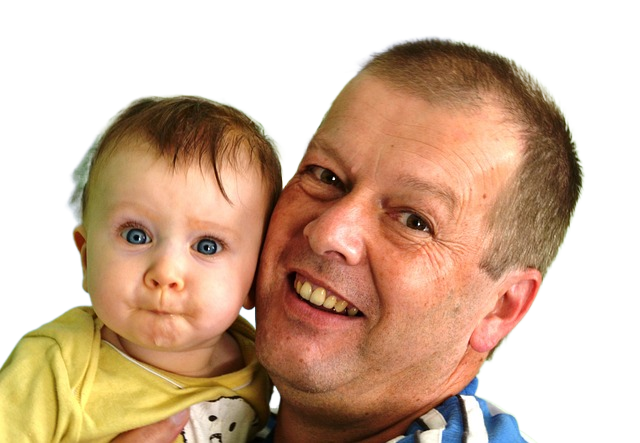
 Poster Happy
Poster Happy
Unlocking Creative Potential: Ignite Your Creativity and Unleash Innovation / Generating Innovative Ideas
Chapter: Generating Innovative Ideas
Introduction:
In this chapter, we will explore various methods and tools to generate fresh and unique ideas that can lead to breakthrough innovation in your personal and professional life. Unlocking your creative potential is crucial for staying ahead in the fast-paced world of the internet, where new and innovative ideas are constantly emerging.
1. The Power of Curiosity:
To generate innovative ideas, it is essential to cultivate a sense of curiosity. Curiosity fuels exploration and allows you to uncover hidden possibilities. Think of your curiosity as a compass that guides you through uncharted territories. Just like a treasure hunter, constantly seek new knowledge, explore diverse perspectives, and ask thought-provoking questions. Embrace your child-like wonder and let it fuel your creative thinking.
2. Divergent Thinking:
Innovation often stems from thinking outside the box. Practice divergent thinking, which involves generating multiple ideas and exploring various solutions to a problem. Let your imagination run wild and don’t be afraid to challenge conventional wisdom. Remember, even seemingly absurd ideas can lead to groundbreaking innovations. As Albert Einstein once said, “Imagination is more important than knowledge.”
3. Idea Generation Techniques:
a. Brainstorming: Gather a group of like-minded individuals and encourage free-flowing idea generation. Create a safe space where all ideas are welcomed, regardless of their feasibility or practicality. Remember, the wilder the ideas, the better. Use creative warm-up exercises, such as word association or mind mapping, to kickstart the brainstorming session.
b. SCAMPER Technique: SCAMPER stands for Substitute, Combine, Adapt, Modify, Put to another use, Eliminate, and Reverse. This technique prompts you to think creatively by challenging you to modify existing ideas or concepts. For example, if you’re brainstorming ideas for a new online shopping platform, you could ask yourself, “What if we combine the convenience of social media with e-commerce?”
c. Role-play and Perspective Shifting: Stepping into someone else’s shoes allows you to see things from a different perspective and generate novel ideas. For example, imagine you are a customer, an investor, or even a competitor. How would your ideas differ if you were in their shoes? Role-playing exercises can help unlock fresh insights and spark innovative ideas.
4. Observing and Borrowing from Other Industries:
One of the most effective ways to generate innovative ideas is by observing successful practices in unrelated industries and adapting them to your own. Take inspiration from industries or fields that have nothing to do with your own and find ways to apply their strategies. For example, if you work in the education sector, look at how the gaming industry engages and motivates users and think of ways to incorporate gamification into your teaching methods.
5. Embracing Failure and Iteration:
Innovation rarely happens overnight. It requires perseverance and a willingness to embrace failure as a stepping stone to success. Don’t be discouraged by initial setbacks or rejected ideas. Learn from your failures, iterate, and continuously improve upon your ideas. Remember, failure is not the opposite of success; it’s a part of the process.
Case Study:
Let’s look at the example of a team tasked with developing a new mobile application for a fitness company. To generate innovative ideas, they could adopt a divergent thinking approach and brainstorm ideas without any judgment. They might come up with ideas such as an augmented reality workout companion or a social media platform for fitness enthusiasts to connect and motivate each other.
Next, they could use the SCAMPER technique to challenge and modify their ideas. For instance, they might think about how they can modify the augmented reality workout companion to include personalized coaching or gamify the experience to make it more engaging.
Lastly, the team could observe and borrow ideas from other industries. They might study successful customer loyalty programs in the hospitality industry and apply those principles to their fitness app to increase user retention.
By combining these techniques and approaches, the team can generate innovative ideas that push the boundaries of traditional fitness apps and provide a unique and valuable experience for their users.
Conclusion:
Generating innovative ideas requires nurturing your creative potential, adopting divergent thinking, exploring various techniques, and learning from other industries. Embrace curiosity, embrace failure, and continuously seek new ways to push the boundaries of what is possible. By unlocking your creativity and generating innovative ideas, you can stay ahead in the ever-evolving internet landscape.
What strategies can I employ to stay motivated and engaged in my career growth?
Steve Jobs: Surround yourself with likeminded, passionate individuals and focus on creating products that truly inspire you. Use your failures as learning opportunities to fuel your motivation.
Elon Musk: Take on ambitious goals and push yourself beyond your limits. Embrace constant learning and innovation to stay engaged. Seek challenges that align with your long-term vision and do not shy away from taking risks.
Jack Ma: Continually seek new opportunities and never settle for mediocrity. Surround yourself with a supportive network and utilize their expertise to learn and grow. Maintain a positive mindset even in the face of setbacks and stay committed to your career goals.
Plato: Cultivate intellectual curiosity and constantly question the world around you. Engage in dialogue and seek different viewpoints to broaden your perspective. Strive for self-improvement and pursue knowledge in order to stay motivated in your career growth.
Leonardo da Vinci: Embrace multidisciplinary learning and be open to different forms of creativity. Cultivate your curiosity and explore diverse fields to fuel your motivation. Continually set new goals and challenge yourself to expand your skills and knowledge.
Master Hui Neng: Embrace mindfulness and be present in each moment of your career journey. Let go of distractions and focus on your inner wisdom. Stay true to your values and cultivate a sense of purpose to stay motivated and engaged in your career growth.
How can I improve my emotional intelligence to better understand and connect with my partner?
乔布斯:Focus on self-reflection and understanding your own emotions first. By knowing yourself, you can better understand and connect with your partner.
伊隆马斯克:Embrace vulnerability and open communication with your partner. By being open about your emotions, you can create a deeper connection and understanding.
马云:Develop empathy towards your partner’s feelings and perspectives. By putting yourself in their shoes, you can better connect and understand their emotional needs.
柏拉图:Seek to understand the deeper essence of your partner’s emotions. By going beyond surface-level understanding, you can create a stronger emotional connection.
维达利:Cultivate mindfulness in your relationship. By being fully present and attentive to your partner’s emotions, you can deepen your understanding and connection.
慧能大师:Practice unconditional acceptance and non-judgment towards your partner’s emotions. By creating a safe and accepting space, you can foster a strong emotional connection.





